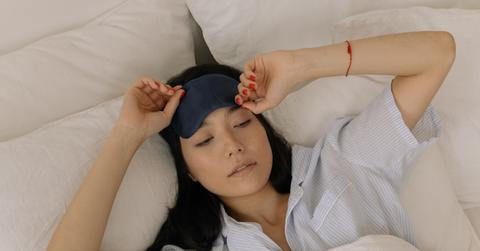5 Signs It’s Your Sleep Quality, Not Time, That’s The Problem

SOURCE: PEXELS
Many people lament the lack of hours in a day to do everything they need to do. However, procrastination and the dreaded afternoon slump could indicate you’re not getting quality sleep.
Sleep quality is essential to everyday life. Without a restful night, the day could bring about fatigue, poor focus and undue stress. Here are five signs your sleep is suffering and tips for correcting it.
Signs You Have Poor Sleep Quality
The body knows when you haven’t had enough sleep. You’ll likely have difficulty keeping your eyes open during the day, with dire consequences on your career and personal life. Here are five signs to look out for with poor sleep quality.
1. It takes you over 30 minutes to fall asleep.
If you’ve been diagnosed with insomnia, you’re not alone. The American Academy of Sleep Medicine says 30% to 35% of people experience brief insomnia symptoms, while 15% to 20% have short-term insomnia lasting around three months. Insomnia may require medicine, with symptoms usually comprising tiredness, poor concentration, difficulty remembering, moodiness and a lack of energy.

SOURCE: PEXELS
2. Your sleep is constantly disrupted.
Speaking of waking up in the middle of the night, how often do you roll out of bed to go to the bathroom? Racing thoughts might also have you tossing and turning until you’re staring at the ceiling. If you wake up more than once, your sleep quality is likely not what it should be.
Consider whether you drink too much caffeine or water before bed. Physical discomfort, body temperature, hormonal imbalances, digestive problems and chronic nightmares are other possible causes.
3. You crave junk foods.
Poor quality of sleep could cause your body to undergo hormonal changes and altered brain activity. As a result, you might experience more cravings for sugar and junk food. Although these hormonal changes are often associated with reduced hours of sleep, fragmented sleep could lead to sleep deprivation or insomnia.
A 2019 study showed how one night of less sleep steers you toward high-calorie and sugary food choices. The study participants also tended to overconsume fattening foods after a restless night. Therefore, poor sleep quality could negatively affect weight management and metabolic health.
4. Your complexion is off.
A tell-tale sign you’re not getting quality sleep is an aging complexion. Changes in appearance could include pale skin, wrinkles, dark undereye circles and redness or swelling around the eyes.
According to research, people with poor sleep quality have a harder time recovering from sunburns, with redness and inflammation lasting more than 72 hours. Skin recovery was also 30% higher in quality sleepers than non-quality sleepers.
5. You’re more anxious and irritable than usual.
While everyone gets stressed, anxiety impacts women twice as often as men. Unfortunately, a lack of quality sleep could overwhelm you even more.
It can be challenging to see the big picture when overtired, and you may be too exhausted for interactions. Unfortunately, irritability can hurt you in the workplace. You wouldn’t want to give yourself the reputation of being difficult to work with because of a restless night.
In one study, cognitive emotion regulation methods — positive thought processes — boosted sleep quality and reduced anxiety in study participants. The results demonstrated the importance of cognitive coping strategies and sleep quality in improved mental health outcomes.

SOURCE: PEXELS
Tips For Boosting Your Sleep Quality
Once you’ve realized your sleep quality is suffering, it’s time to make changes for a more restful night. For example, nutritious food improves sleep quality as much as sleep deficiency leads to sugary cravings — meaning you might want to modify your diet. The following tips could help you get more quality shut-eye. Experts also recommend solutions such as consuming melatonin-rich foods such as bananas, walnuts and cherries, ensuring your bedroom is as dark as possible, including turning off flashing lights or nightlights, and adjusting your thermostat between 60°-67° Fahrenheit for better-regulated body temperature.
Quality sleep is essential to professional success, as you tend to lose steam when your sleep quality could be better. Taking the necessary measures to have a restful evening will help you recharge, stay alert and concentrate throughout the day.






